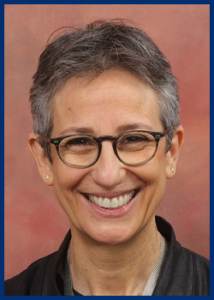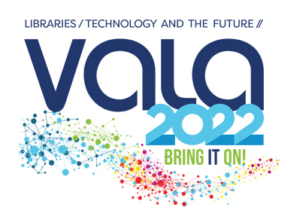Playing Nice: Bridging the Gap between Two Core Components of in Academia
VALA2022 Vendor Presentation
Tamar Sadeh
- Teaching and Learning Solutions, Vice President
- Ex Libris, a ProQuest Company
Please tag your comments, tweets, and blog posts about this session: #vala2022
Abstract
For many years, the technological worlds of learning management systems and library management systems have developed on separate tracks, with no technical bridge between them. While course materials have always been crucial to successful teaching and learning, the connection between the reading lists in syllabi and the library that provides the readings—physically or electronically—was supported more or less manually. As a result, finding and accessing readings posed a challenge for students, and libraries often lacked information about teaching and learning needs.
Over the last decade, course resource list solutions emerged as the missing link between libraries and learning technologies. Leveraging the LTI standard to integrate with learning management systems, resource list solutions enable libraries to offer services to academics and students in the right context—within the learning management system. Informed of the materials selected by academics, librarians can ensure the materials’ availability. Resource list solutions have also transformed the user experience of the teaching staff, who can easily compile resource lists from library and non-library materials of all types without worrying about broken links and copyright compliance.
The gap between libraries and learning technologies is not only about technology. For example, whereas libraries never track individual patrons’ usage (unless a library service requires this information), learning management systems focus on the relationship between academics and students and diligently monitor student engagement. And while the library service culminates in the delivery of a resource to the end user, learning management systems look at the ongoing interaction between academics and students.
Several ideas related to these gaps were raised by the Australian Leganto community and triggered the incorporation of new features in the Ex Libris Leganto® resource list solution. The first involves student engagement data (such as citation views, click-throughs to full text, and comments), which had previously been kept anonymous at all institutions. Libraries can now opt to provide academics with each student’s engagement data, the same type of information that the academics are used to obtaining from the learning management system. Although librarians cannot see this data, they can export it to institutional learning analytics platforms. Research carried out by Ex Libris and Curtin University shows that student engagement with course materials is a significant factor in identifying students at risk.
Other features that were added to the Leganto set of tools are Social Reading and Read & Respond assignments. These features support active learning, thus enhancing students’ engagement with each other, the academic, and course materials.
This session will expand on these new developments, which extend library technology’s options for “playing nice.” Not only do libraries provide resources needed for teaching and learning, but, with the same technology, libraries can also participate in institutional initiatives around student engagement, retention, and success. By transforming the static resource lists of the past to dynamic, active lists, today’s technology positions the library as an integral partner in academic teaching and learning.
Biography
 With a degree in computer science and mathematics, Tamar Sadeh began her career developing search engines for structured and unstructured data. At Ex Libris, a ProQuest company, Tamar has taken an active role in the definition and marketing of the company’s various technologies since she joined in 1999. In the past few years, she has been leading the Company’s initiatives around teaching and learning. Tamar holds a doctorate from City University London’s School of Informatics. In parallel to her work at Ex Libris, Tamar is a narrator for audiobooks at the Central Library for the Blind.
With a degree in computer science and mathematics, Tamar Sadeh began her career developing search engines for structured and unstructured data. At Ex Libris, a ProQuest company, Tamar has taken an active role in the definition and marketing of the company’s various technologies since she joined in 1999. In the past few years, she has been leading the Company’s initiatives around teaching and learning. Tamar holds a doctorate from City University London’s School of Informatics. In parallel to her work at Ex Libris, Tamar is a narrator for audiobooks at the Central Library for the Blind.
![]()
This work is licensed under a Creative Commons Attribution-NonCommercial-NoDerivs 3.0 Unported License

